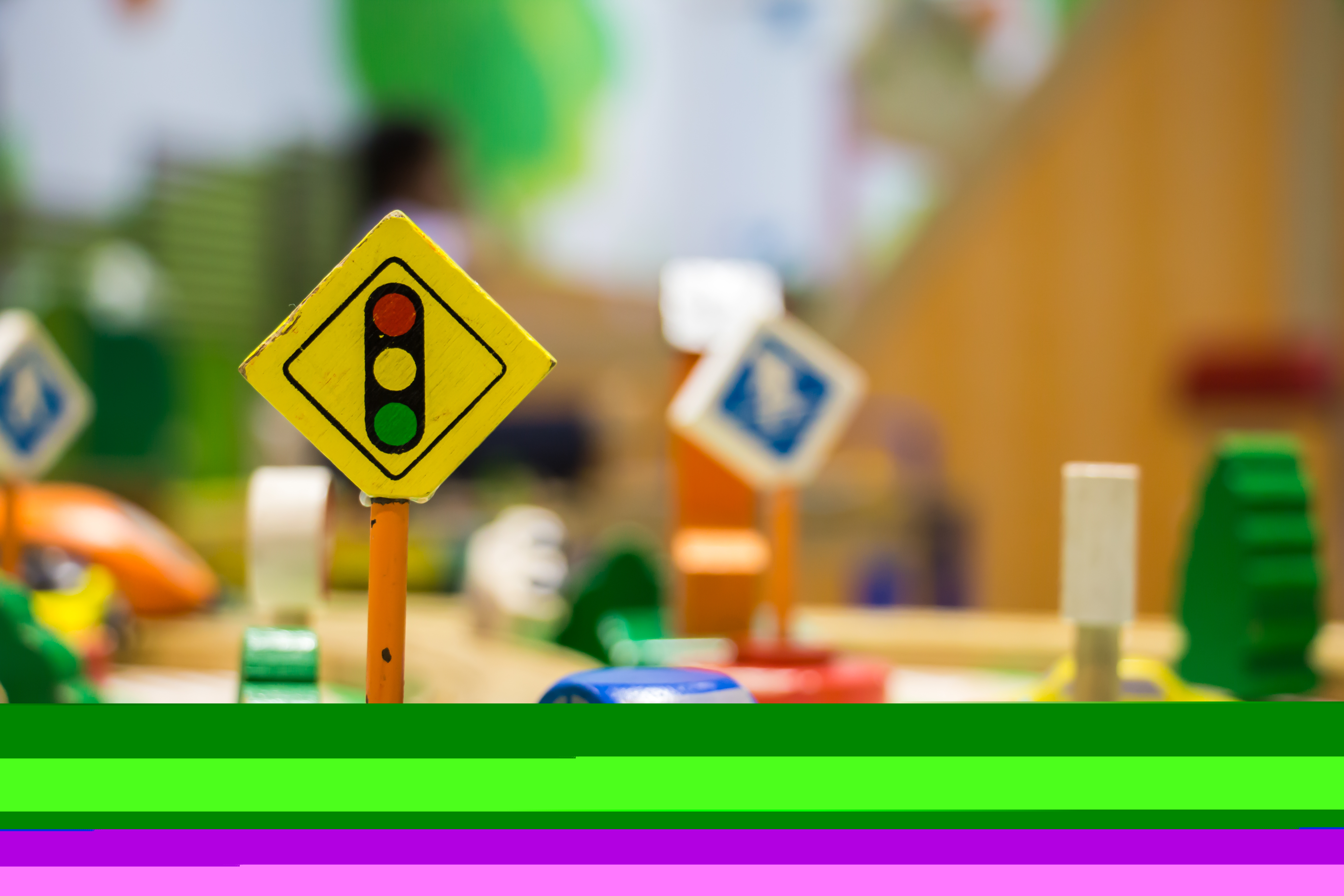Vocabulary Building Normal Community Worksheets for Ages 5-8
4 filtered results
-
From - To
Discover our engaging Vocabulary Building Normal Community Worksheets, specially designed for children aged 5-8! These worksheets help young learners expand their vocabulary by introducing essential terms related to their community and everyday life. With fun, age-appropriate activities, including word searches, matching exercises, and fill-in-the-blanks, kids will enjoy exploring words that describe the world around them. Perfect for home or classroom use, these resources foster language development while encouraging critical thinking and creativity. Help your child gain confidence in their communication skills today with our accessible, interactive worksheets that make learning both effective and enjoyable!
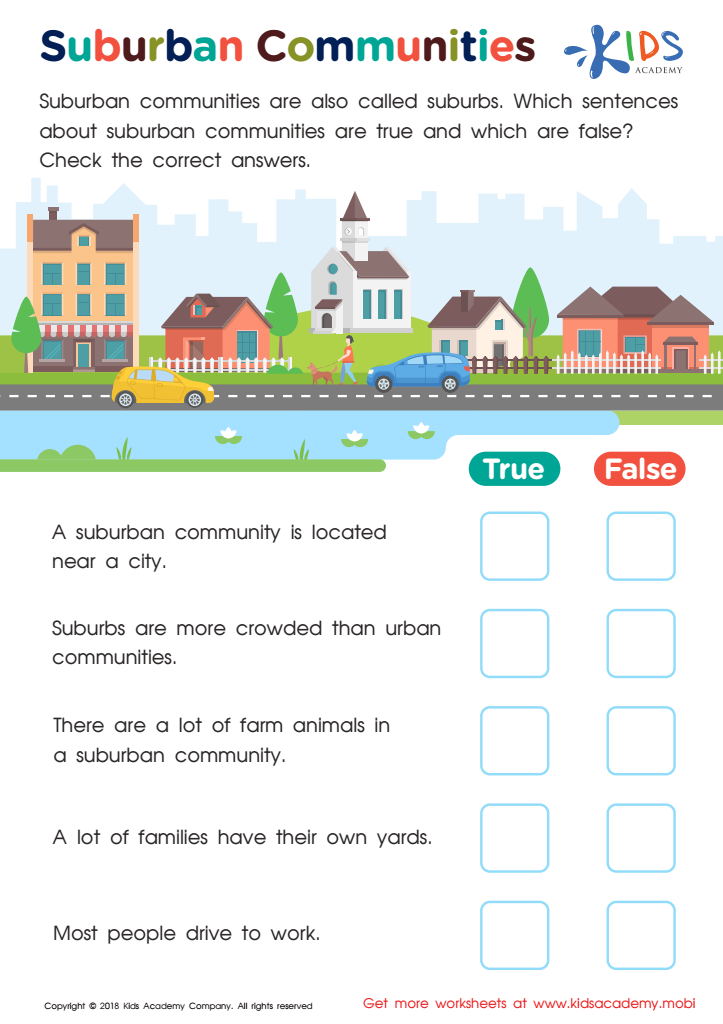

Suburban Communities Worksheet
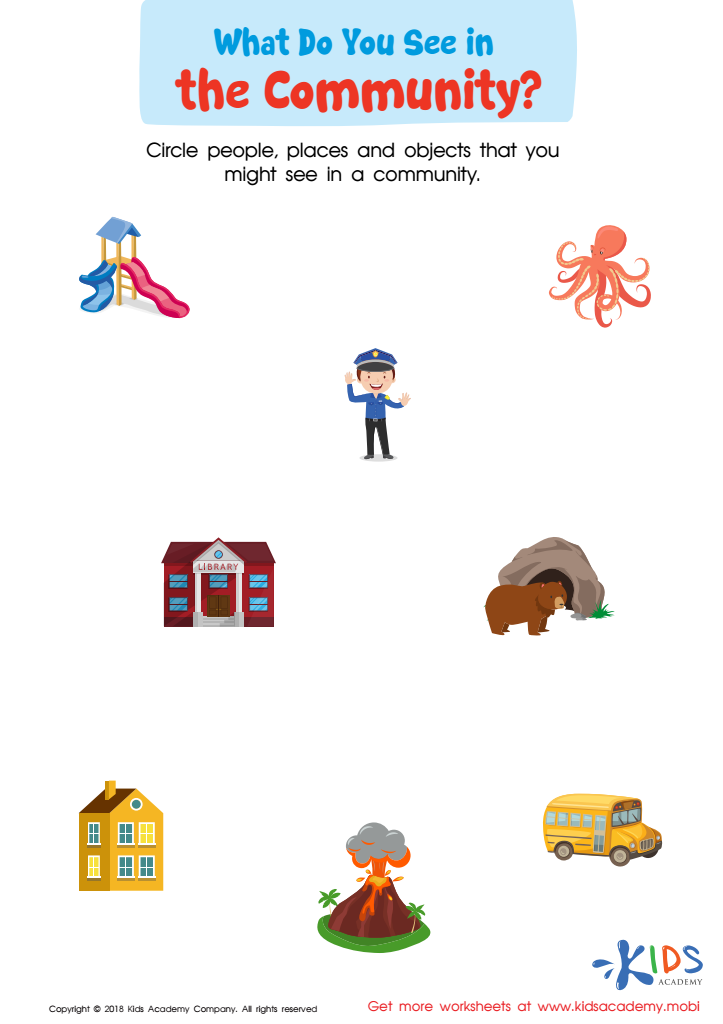

What Do You See in the Community Worksheet
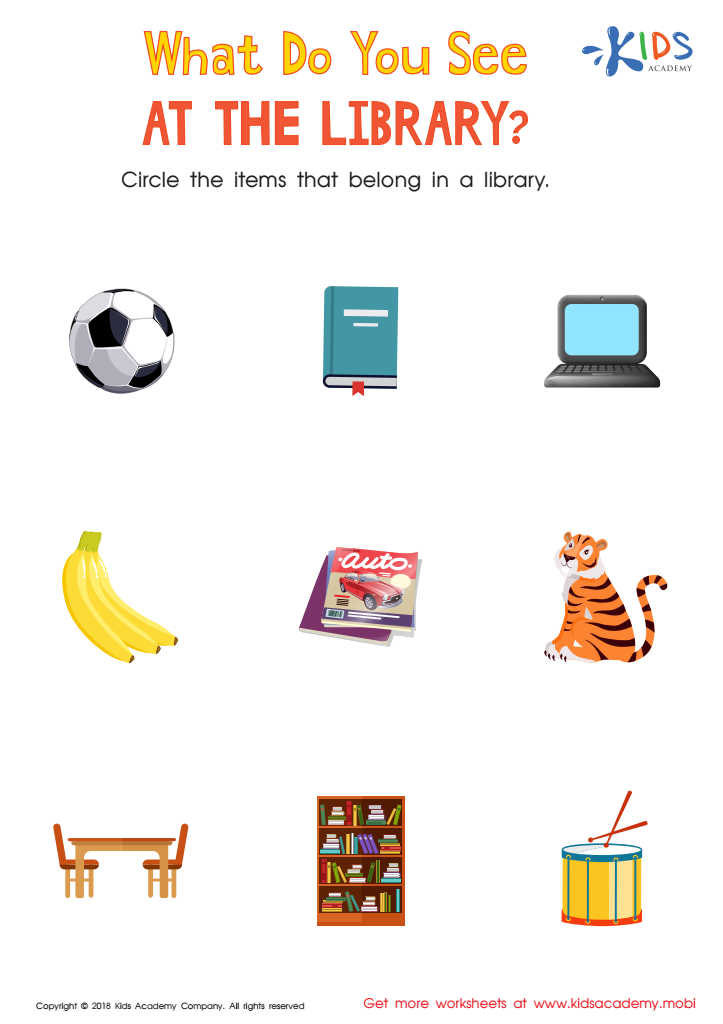

What Do you See at the Library? Worksheet
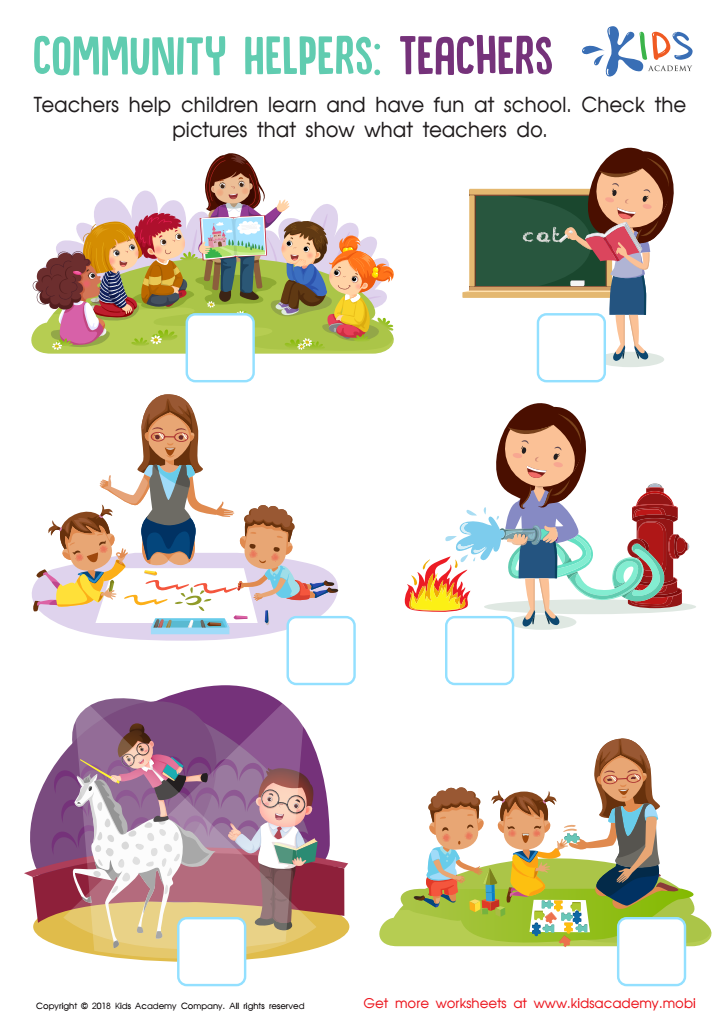

Teachers Community Helpers Worksheet
Vocabulary building is essential for children aged 5-8 as it lays the foundation for literacy and effective communication. During these formative years, children are rapidly acquiring language skills, which are critical not only for academic success but also for social awareness and emotional expression. A strong vocabulary enables young learners to articulate their thoughts, understand complex concepts, and engage meaningfully in conversation, fostering deeper relationships with peers and adults alike.
Parents and teachers should prioritize vocabulary development because it directly correlates with reading comprehension and overall academic achievement. Children with robust vocabularies are more likely to succeed in reading tasks and participate actively in discussions, giving them confidence to explore ideas and express opinions. Engaging in vocabulary-building activities within a normal community, such as storytelling sessions, word games, or group discussions, cultivates a rich learning environment that values language exploration.
Moreover, supporting vocabulary efforts also promotes cultural and social understanding. Exposure to diverse words and their contexts encourages respect for different perspectives and backgrounds. With language being a vital tool for learning and connection, fostering a robust vocabulary in young children equips them with skills they need for lifelong success in education and beyond. Hence, community engagement in vocabulary building is invaluable.
 Assign to My Students
Assign to My Students



